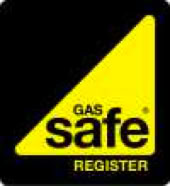
Mike the Boilerman -
Gas Safe Registered boiler and central heating repair technician in west Berkshire

Mike the Boilerman -
Gas Safe Registered boiler and central heating repair technician in west Berkshire
Here are some brief comments about three different systems...
1) A combi boiler. This heats cold mains water as it passes through the boiler so you don't need a hot water tank. Not quite what most people expect from a mains-pressure hot water supply because the flow rate is very poor, but it IS a mains pressure hot water system.
2) Unvented hot water cylinder. With these, the water in the cylinder is heated, stored and delivered to your taps as in a conventional hot water cylinder, but it is fed directly from the mains rather than from a tank in the loft. Plenty of water flow to the hot taps showers etc, depending entirely on how fast the mains pipe can deliver water into your house.
If you choose one of these it is crucial that it is installed by competent person. As the whole cylinder is at mains pressure (or near to, as a pressure regulator is fitted), they need to understand how to install and commission the safety devices correctly. There is an extra training course and exam which plumbers take to qualify them to fit unvented hot water systems. Make sure you find someone who has this qualification (they will have an identity card to say so). The Building Regulations state that only suitably qualified people may install them. Unvented HWCs also need to be serviced annually to check the safety devices are still working correctly.
The brand-leading unvented HWC is the "MegaFlo" from Heatrae-Sadia. Have a look at www.heatraesadia.com
3) Thermal stores. These are similar to an ordinary hot water cylinder, but the water in them never changes. It is heated by a boiler or immersion heaters and mains cold water is passed through a coil of pipe inside the cylinder so it can pick up heat from the stored hot water. So you get mains pressure hot water. Nice idea, but early designs were very prone to lime scaling problems. Scale accumulates on the inside of the heat transfer coil and restricts both the temperature and flow rate of the hot water, leading to a £400 descale every two or three years in certain hard water areas.
Companies like DPS have addressed this problem by using a "plate heat exchanger" instead of the internal heat transfer coil. plate heat exchangers are said to be much less susceptible to scaling, and are fitted in better quality combis for the same reason too. Unfortunately, in my experience these claims of scale resistance are false. I have a combi and a thermal store (in flats I rent), both of which have plate heat exchangers which need descaling regularly. This may be a feature of the water in Reading and Basingstoke. Heating engineers in other hard water areas (West London for example) report no scaling problems with plate heat exchangers.
If you like what I write, please Buy me a coffee. Thank you kindly!

Copyright Michael Bryant 2026
Site first published 16th January 2004
Site last updated Friday 23rd January 2026
Gas Safe Register 197499, CIPHE registration number 009909L

This website makes use of cookies. Please see my privacy policy for details.